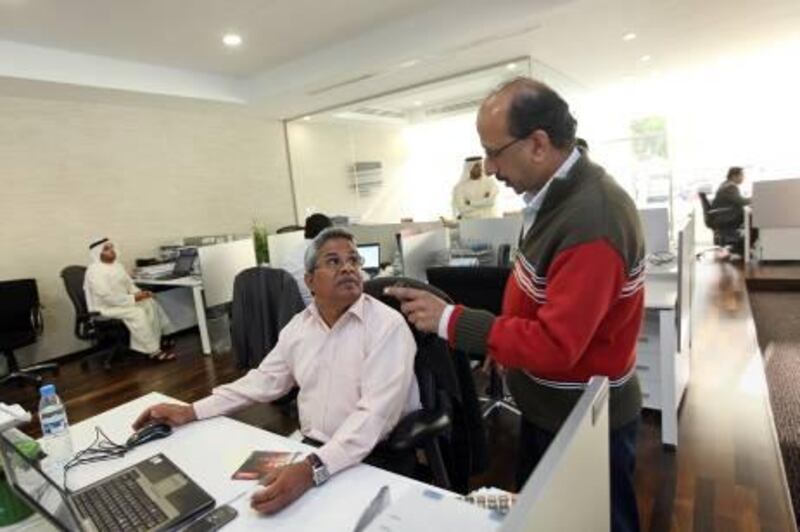DUBAI // Dubai Internet City is helping small and medium enterprises (SME) to get off the ground by bringing multinationals and entrepreneurs together.
Six development programmes, such as DemoCamp, SME Advisor RoadShow and The Indus Entrepreneur, expose budding magnates to venture capitalists by taking care of the entire business-chain process.
The programmes have become popular among SMEs because they offer start-ups help with registration and give them commercial incentives. They also provide guidance and foster a sound business environment.
"We put small and big clients together through networking. It was an industry of relationship-building and it gradually moved to a development where someone can come and present their application for a start-up," said Malek Sultan al Malek, the managing director of Dubai Internet City (DIC).
"It's not just product and services," Mr Malek said. "We allow them to present their idea to our audience, community, judging panel and the people we invite. We guide them on how to [set up their business].
"Once here, you are no longer an individual sitting alone. You're sitting with a community that has Microsoft and Hewlett-Packard, and you become a part of it so you can tap into certain opportunities by being in this environment as it's converging," he said, adding that multinationals and SMEs need each other.
Out of the 150 new businesses that registered at DIC last year, half were SMEs.
More broadly, government figures have shown that SMEs account for about 85 per cent of all jobs in the country and contribute 46 per cent of its output.
Encouraging entrepreneurs has been a main plank of Dubai and Abu Dhabi's plans for the future, and government agencies have been working to improve the climate for small businesses.
Majed al Suwaidi, DIC's director of business development, said the DemoCamp programme sparked a lot of interest in the community.
"We started two years ago and we're trying to speed ahead because we've got a bigger number of people attending the event, about 300, and it's only a matter of time before it picks up in the region," he said.
He also said the idea was to nurture and develop knowledge-based economies to provide a strong base for development in the UAE.
DIC has hosted four DemoCamp series so far, giving entrepreneurs a chance to grab a piece of an extensive market.
"Where can you get free consultancy today?" Mr Suwaidi said. "We are changing the mindset of a region by being able to exchange ideas."
Mr Malek said: "It's very clear the industry is moving towards the individual developing activities and our programmes have shifted from a corporate market to support those entrepreneurs because we know we have them today."
However, he said that programmes should be integrated with the educational system so students, especially nationals, are not limited to thoughts of simply getting jobs, but instead to think about creating their own.
"And we're starting to see this, but we need to speed it up," Mr Malek said. "The education system must reach a certain level where the graduate can take the opportunity and risk to establish an SME ... people are now realising the benefits of developing [SMEs]."
He also said organisations such as the Mohammed bin Rashid Establishment for SME Development, which serves Dubai, should be expanded on a national level.
Mr Suwaidi said: "SMEs are the best opportunities for companies to invest into. There is more and more youth in this region, which is giving a strong push for new entrepreneurs to come into the market."






